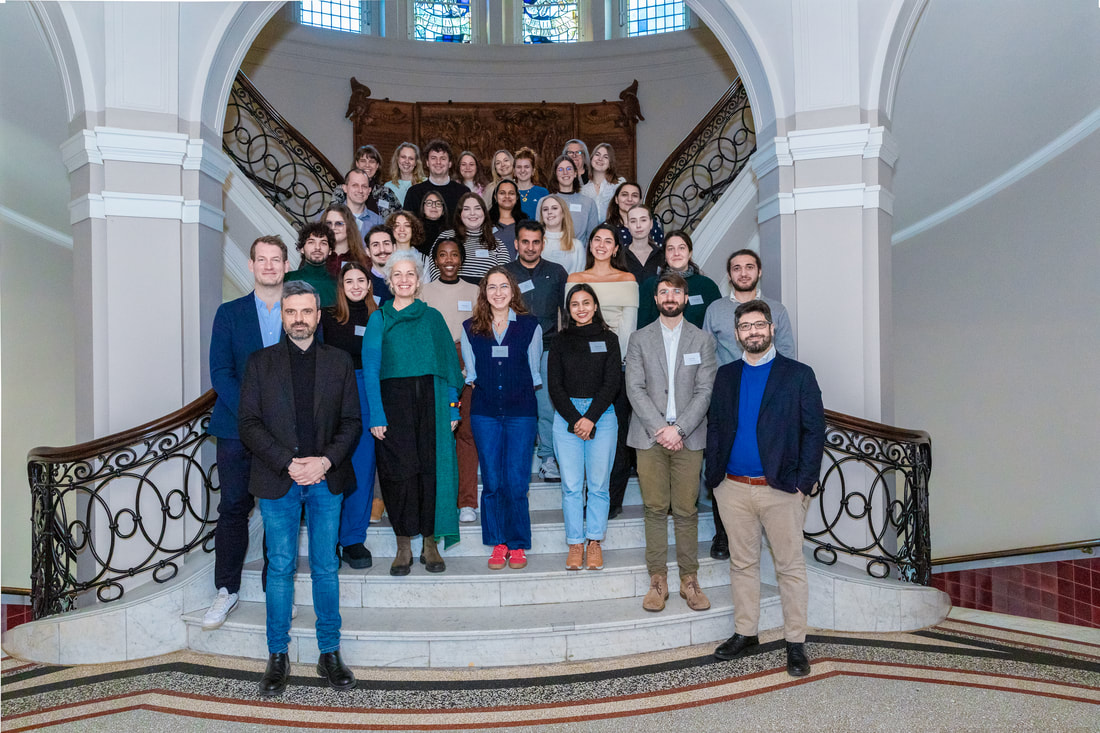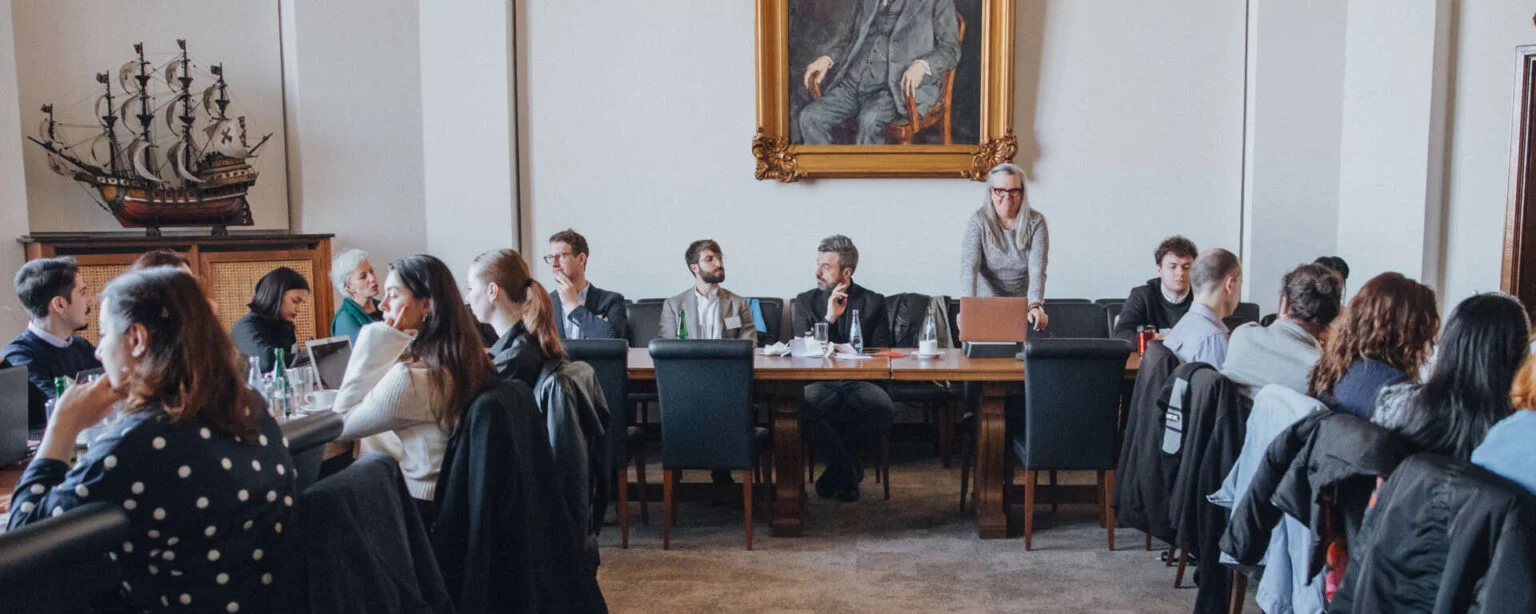BIP 2024 at the University of Bremen: the German Political Science Association (DVPW) recognizes Blended Intensive Programme 2024!
News • Teaching & Network
ICPC scholars contribute to the 2024 BIP on Digital Constitutionalism and the UN Global Digital Compact

In April 2024, the Erasmus+ Blended Intensive Programme (BIP) “Digital Constitutionalism and the UN Global Digital Compact” held its in-person teaching week at the University of Bremen. The BIP is part of the teaching activities of the Digital Constitutionalism Network (DCN), in which Mauro Santaniello and Nicola Palladino participate as members and teaching staff.
The programme has been recognised by the German Political Science Association (DVPW) as an exemplary teaching project on digital constitutionalism and global digital governance.
BIP in Bremen, 22–26 April 2024
The presence phase of the BIP took place in Bremen from 22 to 26 April 2024, embedded in the MA programme in Media Culture and Globalization at the University of Bremen. Five virtual sessions before and after the on-site week framed the intensive teaching block, combining online collaboration with face-to-face work on digital constitutionalism and the evolving UN Global Digital Compact.
Eight partner universities joined the initiative: Bremen (host), Padua, Salerno, Helsinki, Groningen, Klagenfurt, Tallinn and Dublin City University. A total of 26 students from political science, law and communication studies took part in the Bremen week, with additional participants joining remotely. Teaching was shared by an interdisciplinary team of eight lecturers, mostly from political science, supported by practitioners invited for the final sessions.
Focus on the UN Global Digital Compact
The BIP explored the negotiation process and draft text of the UN Global Digital Compact, which aims to set global reference points for the governance of digital technologies. Working in cross-university groups, students prepared policy briefs on specific issues in the Compact negotiations, such as facial recognition, gender equality and the protection of human rights online, formulating recommendations for policymakers and stakeholders.
During the final days in Bremen, practitioners were invited to discuss the Compact in a public event and to provide feedback on the students’ policy briefs. As a further step, participants then engaged virtually with the European Dialogue on Internet Governance (EuroDIG) 2024 in Vilnius, connecting classroom work to real-world debate in the field of global digital governance.
ICPC and the Digital Constitutionalism Network
The Digital Constitutionalism Network, which grew out of a CAIS-funded working group, brings together scholars and practitioners to examine how rights, principles and constraints on power are being redefined in the digital age. Within this framework, Mauro Santaniello and Nicola Palladino contribute to the design and delivery of the BIP, linking ICPC’s research on digital sovereignty and Internet governance to joint teaching activities across partner universities.
Further information
The BIP and its learning design are presented in the DVPW blog post “Digital Constitutionalism and the UN Global Digital Compact”. Policy briefs and materials are progressively published on the BIP website, while the broader research and teaching agenda of the network can be explored on the Digital Constitutionalism Network site.





Comments are closed, but trackbacks and pingbacks are open.